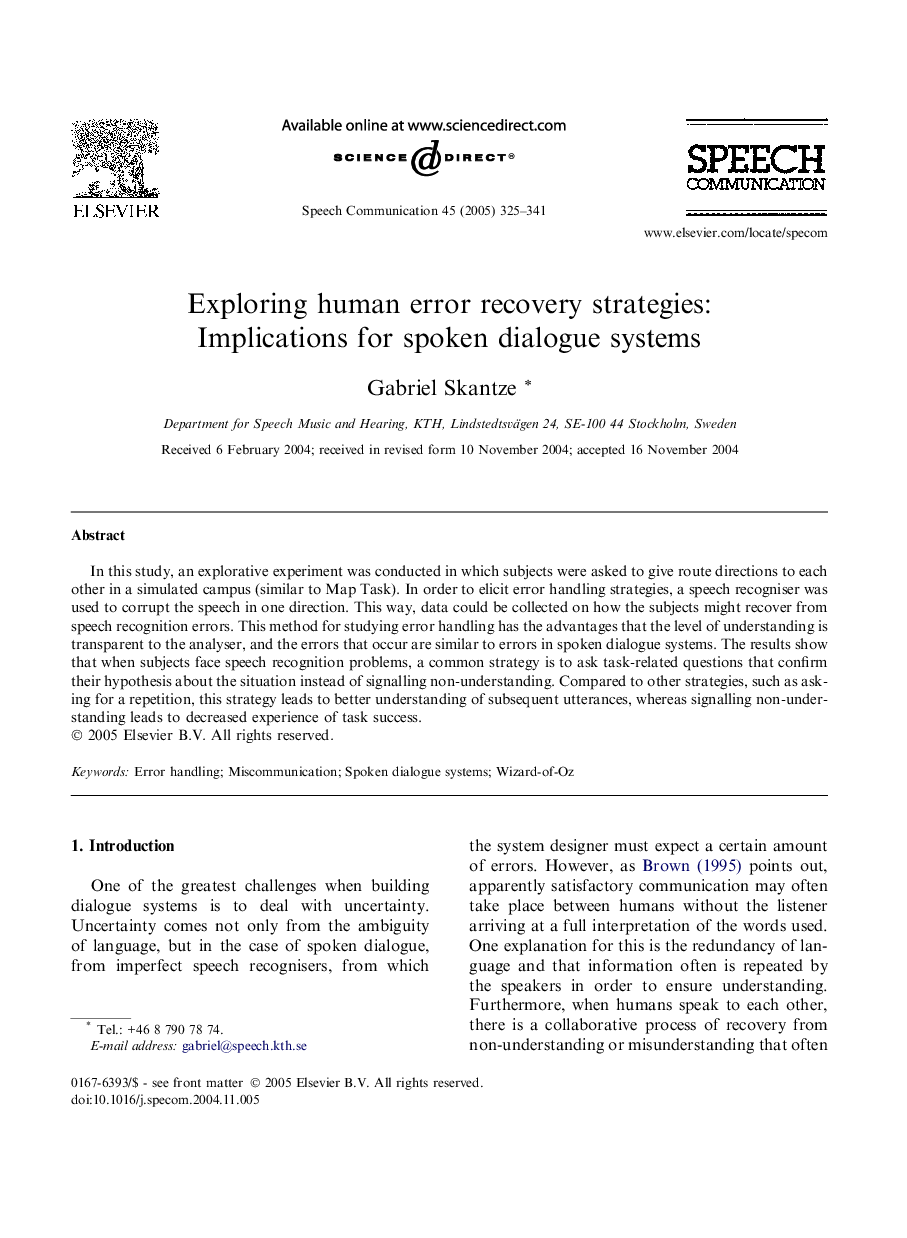| Article ID | Journal | Published Year | Pages | File Type |
|---|---|---|---|---|
| 10370248 | Speech Communication | 2005 | 17 Pages |
Abstract
In this study, an explorative experiment was conducted in which subjects were asked to give route directions to each other in a simulated campus (similar to Map Task). In order to elicit error handling strategies, a speech recogniser was used to corrupt the speech in one direction. This way, data could be collected on how the subjects might recover from speech recognition errors. This method for studying error handling has the advantages that the level of understanding is transparent to the analyser, and the errors that occur are similar to errors in spoken dialogue systems. The results show that when subjects face speech recognition problems, a common strategy is to ask task-related questions that confirm their hypothesis about the situation instead of signalling non-understanding. Compared to other strategies, such as asking for a repetition, this strategy leads to better understanding of subsequent utterances, whereas signalling non-understanding leads to decreased experience of task success.
Related Topics
Physical Sciences and Engineering
Computer Science
Signal Processing
Authors
Gabriel Skantze,
